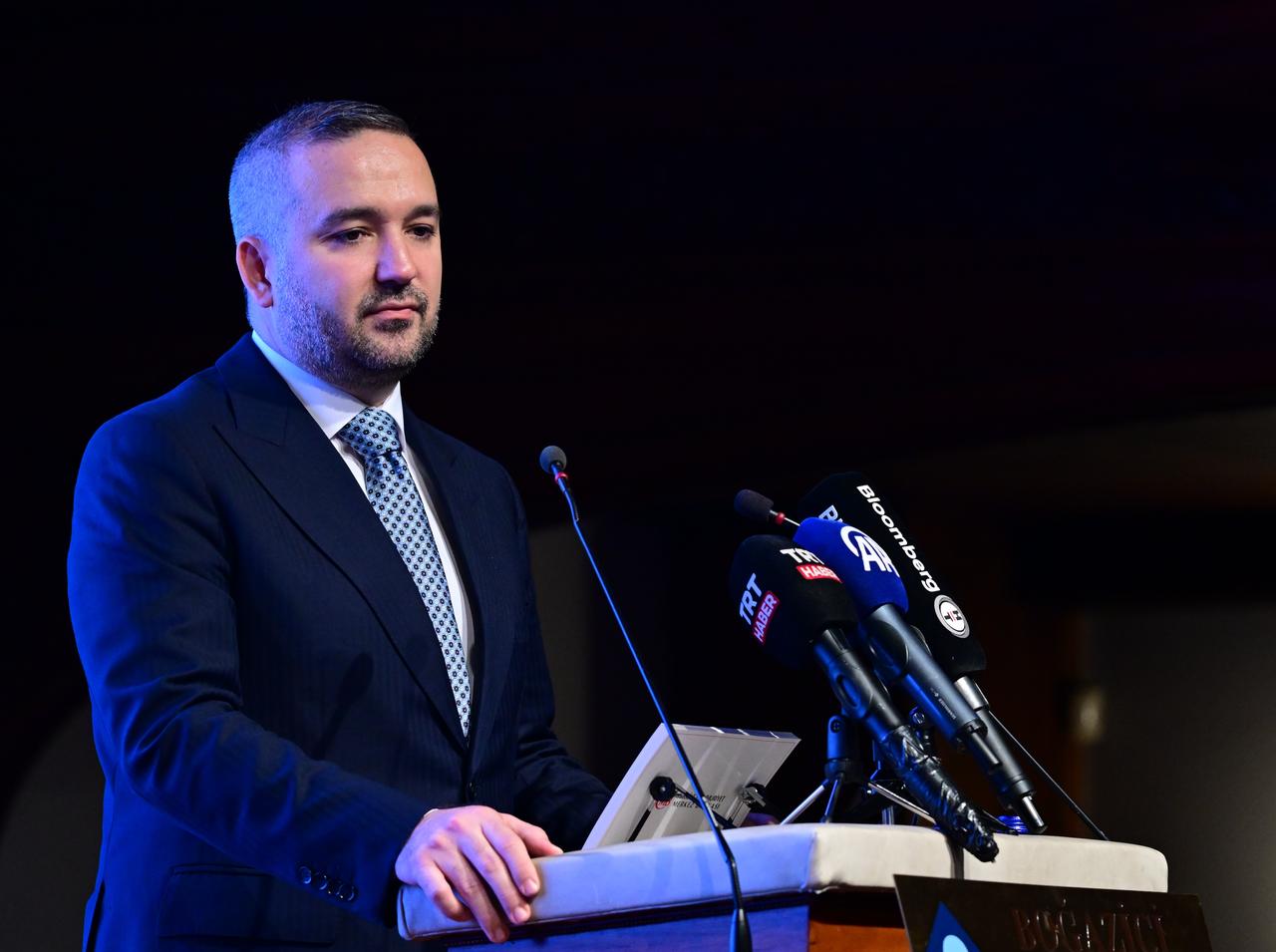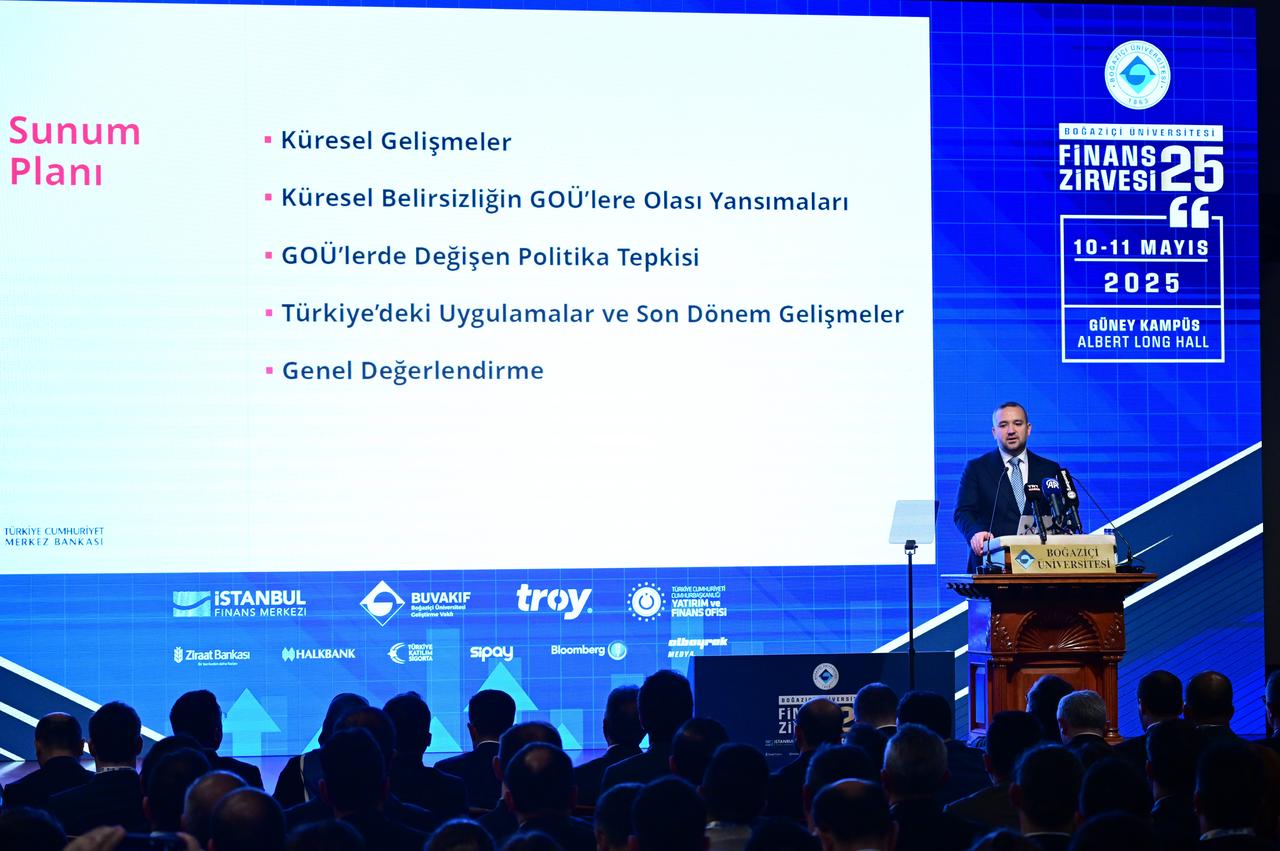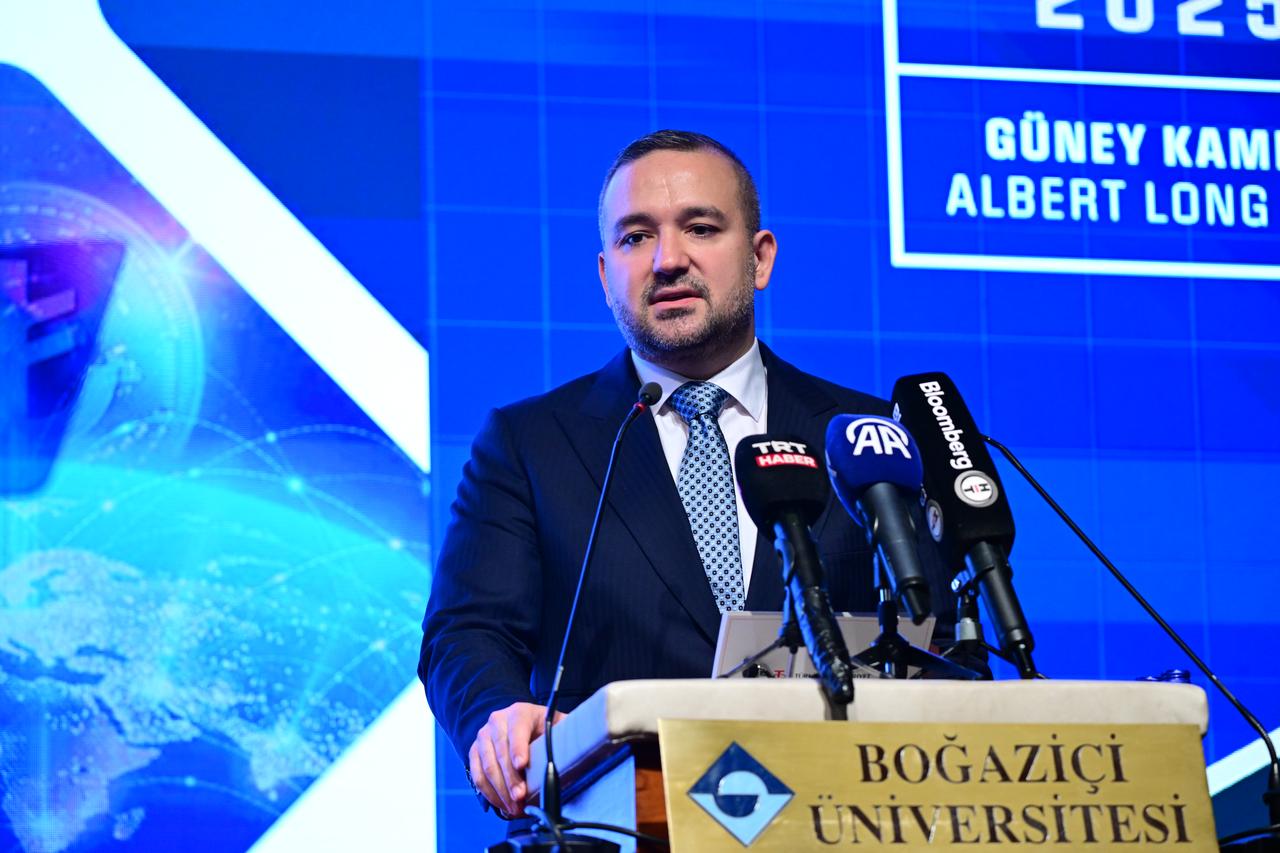
Türkiye's Central Bank Governor Fatih Karahan pledged to maintain the country's tight monetary policy stance until inflation shows a sustained decline and price stability is achieved, speaking at the Bogazici University Finance Summit 2025 on Saturday.
"Our tight monetary policy stance will continue until we achieve a permanent decrease in inflation and price stability," said Karahan.
"As the Central Bank, we will continue to work determinedly to ensure the continuation of the disinflation process and to reduce inflation in line with our intermediate targets."

Karahan emphasized that increasing geopolitical risks, technological transformation, and volatile financial conditions on a global scale are affecting monetary policy.
He noted that recent developments in global trade policies have increased uncertainties in both developed and developing countries.
"Despite the postponement of a significant portion of recent tariff decisions, uncertainty regarding global trade and economic policies remains high," Karahan stated. "These uncertainties increase downward risks on global growth while potentially affecting inflation differently across countries."
The governor highlighted that uncertainty disrupts decision-making processes, causes investments to be postponed, leads to consumption contraction, and suppresses growth in export-oriented economies.
He added that investors tend to seek safer havens during uncertain periods, increasing risk premiums for developing countries and raising borrowing costs.

Karahan explained that central banks in emerging markets have been diversifying their monetary policy tools as global financial cycles become increasingly uncertain and volatile.
"Especially after the 2008-2009 global financial crisis, vulnerabilities against external shocks became more visible as global financial conditions weakened monetary policy transmission mechanisms," he said.
According to Karahan, two complementary tool groups stand out in this period alongside policy rates: foreign exchange market interventions and macroprudential policies.
He noted that direct or indirect foreign exchange interventions, implemented to support price stability in emerging markets where exchange rate pass-through is high, have become an important component of the monetary policy toolset.
The Central Bank governor outlined Türkiye's monetary policy implementation, which strengthens the policy rate with various macroprudential policies.
"We can summarize the tools we use to support our tight monetary stance in three main groups," Karahan explained.
"With regulations for deposits, we aim to increase the share of Turkish lira deposits and gradually reduce FX-protected deposits (KKM). With regulations for credit growth, we prevent fluctuations in credit demand. And with our steps regarding liquidity, we manage the excess Turkish lira liquidity in the system."
Since March, the bank has taken steps to increase monetary tightness in response to developments in financial markets that could pose risks to the inflation outlook.
These steps include measures to increase Turkish lira funding costs, liquidity measures, and steps to limit foreign exchange demand.

Karahan pointed to the ongoing decline in inflation while noting that recent financial market developments have temporarily slowed improvements in inflation expectations.
"The share of Turkish lira deposits at 58 percent is close to its historical average," he said, adding that the reduction in foreign exchange-protected deposits was achieved without creating risks to financial stability and by prioritizing Turkish lira-denominated deposits.
Looking ahead, Karahan mentioned that commodity prices are contributing to disinflation by following a more moderate course, while domestic demand is weakening due to monetary policy measures.
"Considering that uncertainties are higher compared to the past period, we maintain a cautious and tight monetary policy stance," he concluded. "Price stability is a prerequisite for sustainable growth and increased social welfare."